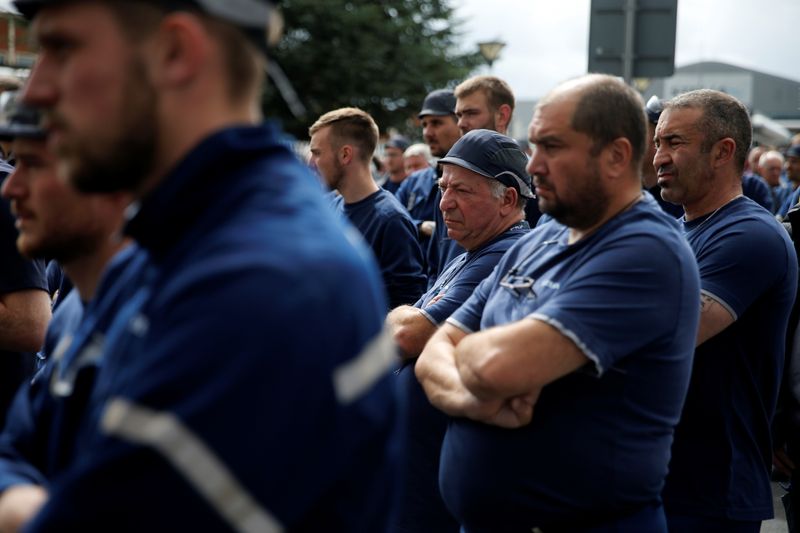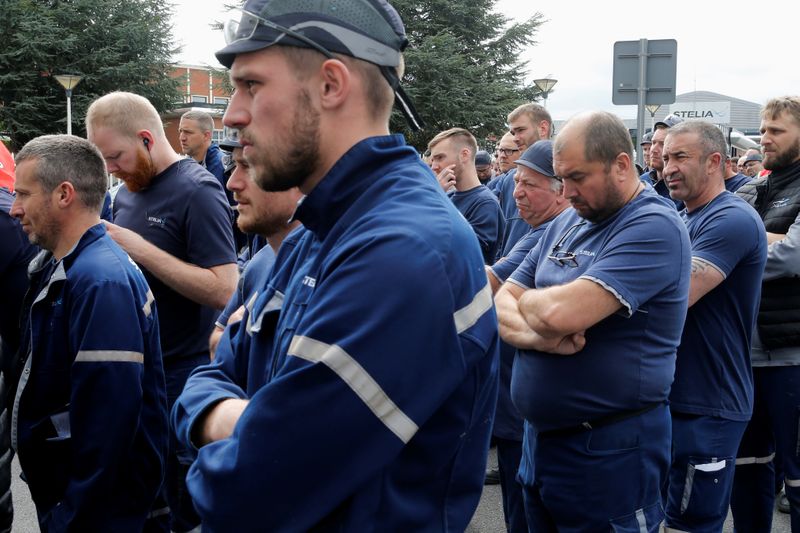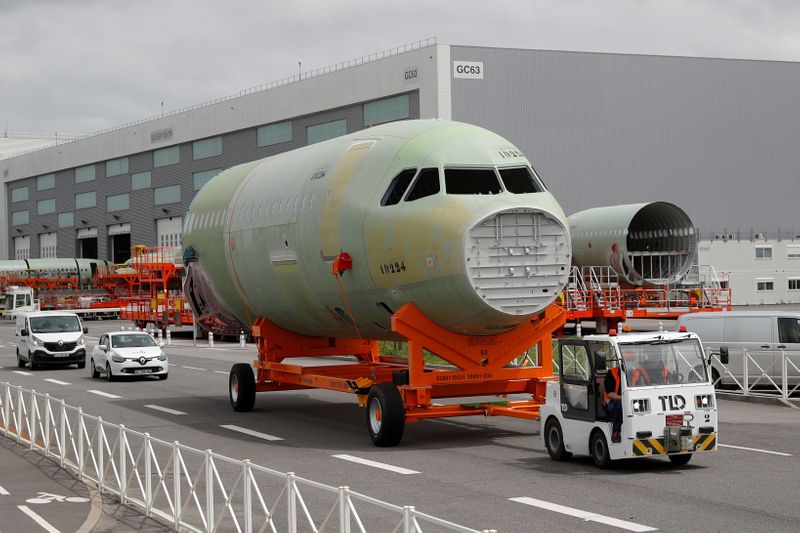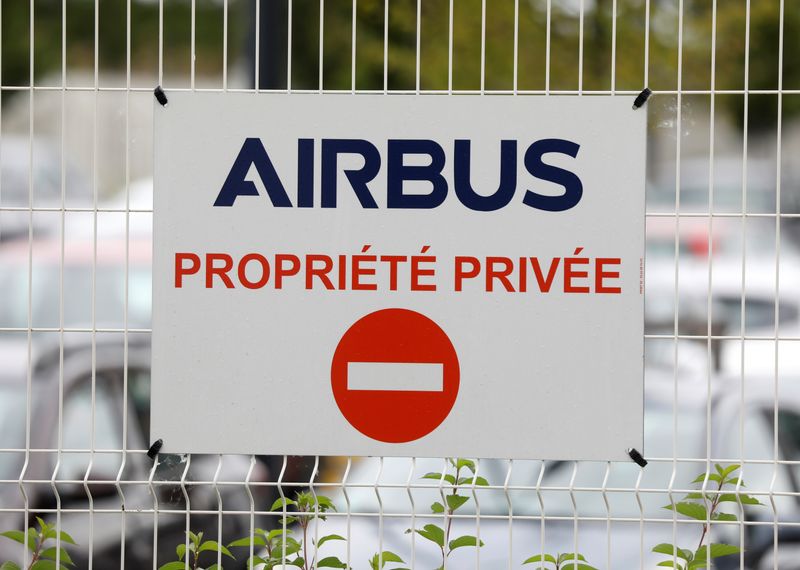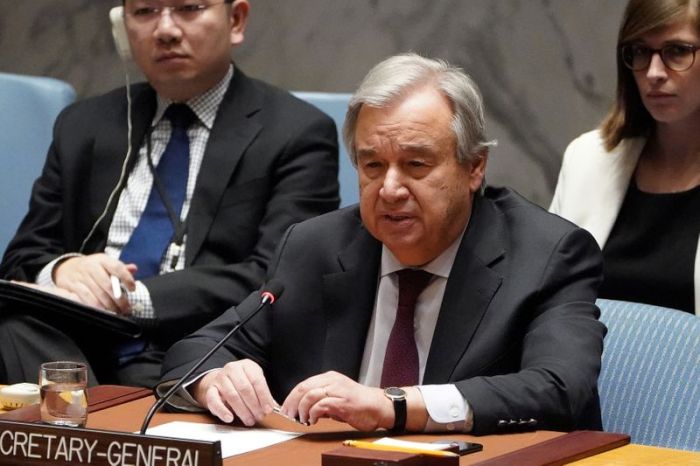TOULOUSE/BERLIN (Reuters) – Europe’s Airbus <AIR.PA> left the door open on Wednesday to scaling back its planned 15,000 job cuts in exchange for government-funded labour schemes and research, as its coronavirus restructuring stoked political and union alarm.
Europe’s largest aerospace group plans to cut 11% of its global workforce, after a 40% slump in its 55 billion euro ($61.8 billion) jet business, sparking anxiety about compulsory redundancies in France, Germany, Spain and Britain.
France urged Airbus <AIR.PA> to make as few forced layoffs as possible, while French and German unions said compulsory cuts at the European planemaker were a “red line”.
“The state urges Airbus to ensure that there are as few forced redundancies as possible,” French Junior Transport Minister Jean-Baptiste Djebbari told BFM TV.
German Economy Minister Peter Altmaier urged Airbus to spread the burden in a fair way.
“We of course assume this restructuring will take place in such a way that neither favours nor disadvantages any country,” he said in a clear reference to maintaining balance with France.
Chief Executive Guillaume Faury has warned staff against reverting to national or regional agendas that plagued the Franco-German-led firm in the past as workers battle for jobs.
“We are successful because we have a European and global DNA and because of this partnership spirit which is very unique to Airbus,” Faury told Reuters late on Tuesday.
More than two thirds of the cuts are in France and Germany where Airbus sites are running 40% below pre-crisis levels.
In a finely balanced presentation, Airbus announced plans to cut 5,000 posts in France, 5,100 in Germany, 900 in Spain, 1,700 in the UK, and 1,300 elsewhere by mid-2021.
The total includes another 900 non-Covid cuts that Airbus says it already planned at its Premium AEROTEC unit, meaning a total of 6,000 posts are targeted in Germany by the scheme.
Faury later said in an interview published by Les Echos newspaper on Wednesday no plant closure “was in the pipeline”.
CONCESSIONS
Veteran human resources chief Thierry Baril told reporters on Wednesday that a fifth of the 5,000 job cuts targeted in France could be saved once the French government formalises a new reduced-work scheme, a move expected next week.
Another 500 engineering posts could be saved with the help of promised state investment in next-generation green jets.
Airbus has outlined the possibility of saving another 1,500 jobs in Germany through similar support.
Spanish Prime Minister Pedro Sanchez said it is working with Airbus to find ways to keep jobs in the country.
France and Germany own 11% each of Airbus and Spain 4%, though their power to intervene directly is limited.
Aircraft industry sources said horse-trading over jobs and government aid is common and concessions are expected. But Airbus’s stated target for cutting full-time jobs is three times bigger than its previous 2008 shake-up which included cutting 5,000 full-time posts, plus 5,000 temporary ones.
In its 51 years, Airbus has so far avoided significant forced redundancies as it challenged Boeing for a space in the global aircraft market and then enjoyed years of record demand.
France’s Force Ouvriere union said preventing such cuts was a “red line”.
Germany’s IG Metall union said Airbus must not hide behind the coronavirus crisis to implement earlier aims to downsize.
Djebbari, the French minister, meanwhile confirmed Air France planned to shed nearly 7,600 jobs this week
Djebbari urged Air France <AIRF.PA> to minimise compulsory redundancies, after the government agreed state aid for the carrier worth 7 billion euros ($7.9 billion).
“It’s not 7 billion euros to pay for redundancy programmes. It’s 7 billion for survival, to pay salaries at the end of the month,” the minister said.
(Additional reporting by Sudip Kar-Gupta, Richard Lough, Myriam Rivet, Sarah White, Alexander Huebner and Julie Rimbert; Writing by Richard Lough and Tim Hepher; Editing by Louise Heavens, Edmund Blair and Alexandra Hudson)

